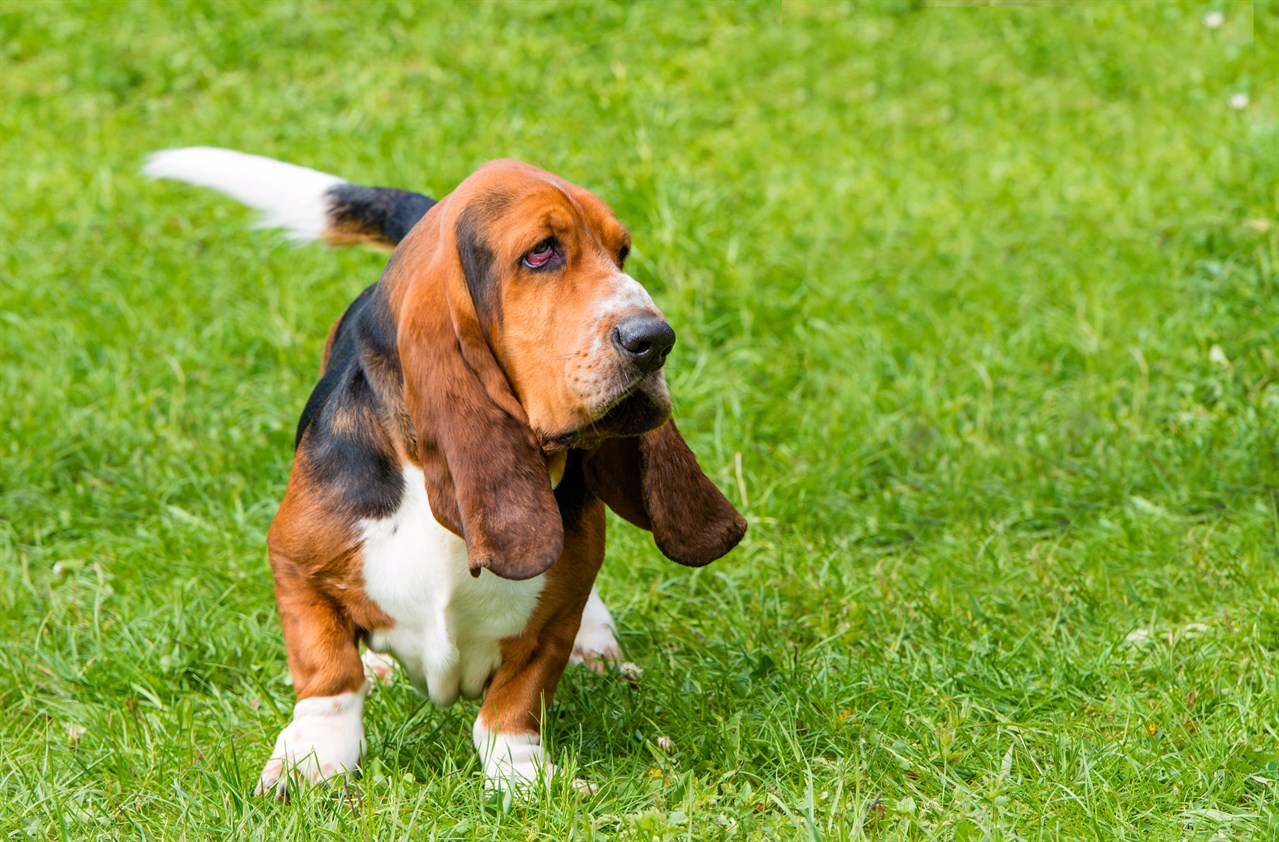Basset Hound Feeding Habits and Food Requirements

Feeding your Basset Hound a well-balanced diet is essential to their health and well-being. Like all dogs, Basset Hounds have specific feeding habits and food requirements that should be considered to keep them in optimal condition.
Age and Life Stage
Basset Hounds, like all dogs, go through different life stages, each with its own nutritional needs:
- Puppy Stage: Basset Hound puppies require a diet that supports their growth and development. Look for high-quality puppy food labelled as appropriate for large breeds. Puppies typically need to be fed more frequently throughout the day.
- Adult Stage: Adult Basset Hounds thrive on a balanced diet suitable for their size and activity level. Feeding them twice a day is a common practise. Ensure that the food you choose is formulated for adult dogs.
- Senior Stage: As Basset Hounds age, their metabolism may slow down, and they may become less active. Transitioning to a senior dog food formula can help address their changing nutritional needs. Senior dogs may also benefit from more frequent, smaller meals to prevent digestive issues.
Portion Control
Basset Hounds have a tendency to gain weight, so portion control is essential. Obesity can lead to various health problems in this breed, including joint issues and back problems due to their elongated bodies. Follow the recommended feeding guidelines on the dog food packaging, and monitor your Basset Hound's weight and body condition regularly. Adjust their portions as needed to maintain a healthy weight.
High-Quality Dog Food
Choose a high-quality commercial dog food that meets the nutritional standards set by reputable organisations. Look for a food that lists a protein source (such as chicken or beef) as the first ingredient. Avoid foods that contain excessive fillers, artificial additives, or low-quality ingredients.
Protein and Fat Content
Basset Hounds benefit from a diet with moderate protein and fat content. The exact percentages can vary depending on their age, activity level, and individual needs. Consult with your veterinarian to determine the most appropriate protein and fat levels for your specific Basset Hound.
Avoid Overfeeding
Basset Hounds are known for their pleading and expressive eyes, which can make it tempting to give them extra treats or table scraps. However, overfeeding can lead to obesity and related health issues. Stick to a regular feeding schedule and limit treats to small, healthy options.
Fresh Water
Always provide fresh, clean water for your Basset Hound. Proper hydration is essential for their overall health, digestion, and well-being.
Special Dietary Considerations
Some Basset Hounds may have specific dietary considerations or allergies. If you notice signs of food allergies or sensitivities (such as itching, digestive problems, or skin issues), consult with your veterinarian to determine if a special diet or hypoallergenic food is necessary.
Consult with Your Veterinarian
Your veterinarian is an excellent resource for tailoring your Basset Hound's diet to their specific needs. Regular check-ups and discussions with your vet can help ensure your Basset Hound receives the best nutrition and stays healthy throughout their life.
In summary, feeding a Basset Hound involves providing a well-balanced diet appropriate for their age and activity level, controlling portion sizes to prevent obesity, and choosing high-quality dog food. With proper nutrition and portion control, you can help your Basset Hound maintain a healthy weight and enjoy a long, happy life.
Basset Hound puppies for sale
- Find Basset Hound puppies for sale in ACT
- Find Basset Hound puppies for sale in NSW
- Find Basset Hound puppies for sale in NT
- Find Basset Hound puppies for sale in QLD
- Find Basset Hound puppies for sale in SA
- Find Basset Hound puppies for sale in TAS
- Find Basset Hound puppies for sale in VIC
- Find Basset Hound puppies for sale in WA